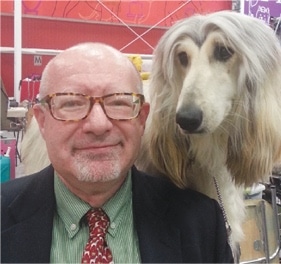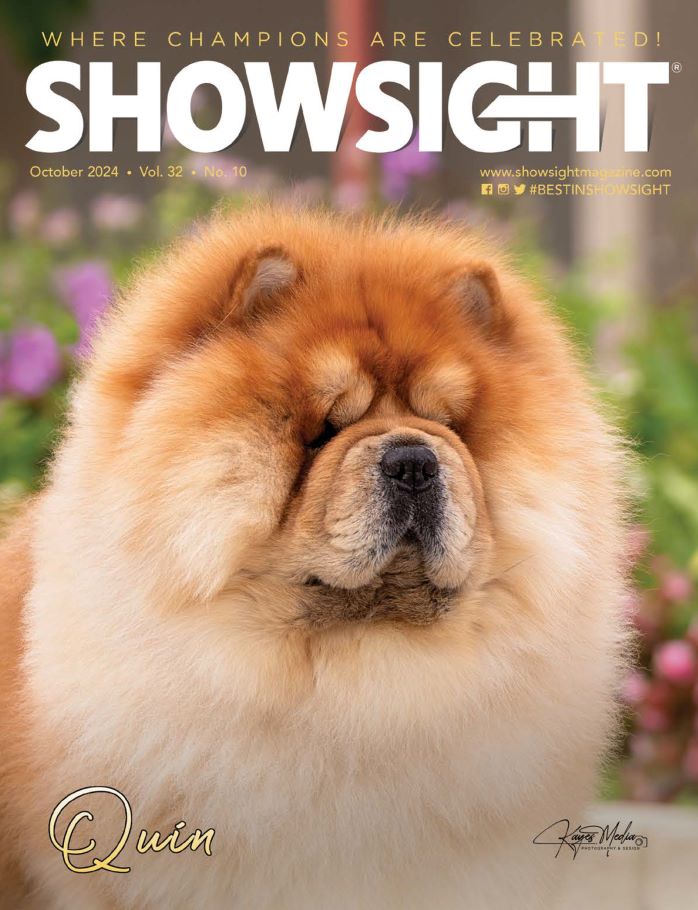Practice for Those ‘Bite Your Tongue’ Moments
Dog fanciers are a vocal bunch. We are passionate about the sport and every aspect of our dogs: their breeding, their health, their evaluation in the show ring, and their contribution to the next generation. We don’t sit idly by when criticism is directed their way. Yet a cursory glance at the public squabbles played out on social media proves that, while a Gold Grand Championship is highly prized, we pay far less attention to the advice we were given growing up that “silence is golden.” Emotional remarks delivered in haste can easily escalate. While we are experts at cultivating coat, cultivating restraint is an equally important skill that will serve us well in the sport.
Consider the following explosive situations that could have been avoided had we practiced a “bite your tongue” moment (or, if you prefer, a “bite your fingers” moment for those who are more inclined to duke it out at the keyboard).
Critiquing a New Exhibitor’s Dog
You arrive at a show and see a newbie timidly brushing a gangly puppy that you’d consider a total pet. Maybe so. But launching into an impromptu, uninvited critique of the dog will not impress fellow exhibitors with your knowledge of the Breed Standard. Instead, you will alienate your fellow exhibitors, particularly the puppy’s breeder, and very possibly snuff out any interest that novice exhibitor might have had about entering a future show. We can’t afford to lose newcomers. Save the critique, and instead offer a tip on grooming or using a more suitable show lead. Who knows? That novice’s next show prospect might come from a future litter of yours.
Dumping on a Club Volunteer
Most show-giving clubs want to constantly improve their events. Suggestion boxes are often placed on the show committee table for exhibitors to use, and clubs typically hold a post-mortem meeting after their show to discuss how things went. Hardworking club volunteers are not snowflakes, and can usually handle suggestions from fellow members if they are diplomatically worded (“Next year, we might want to try…” is a nice way to begin). This is not the time to complain about the judging panel, lousy food or cramped grooming space. Unless you are prepared to accept a job on the show committee, go easy on the volunteers. They are not plentiful, and more than a few exhausted show chairs have quit after feeling beaten up by what they saw as ungrateful members. Unraveling the fabric of the show committee and leaving a club without a few key officers is a serious offense. If you are attending your club’s post-show debriefing, practice many bite-your-tongue moments.
Venting to a Stud Dog Owner
We all know that when a great litter on paper yields less-than-stellar results in the whelping box, the puppies have only one parent. Most experienced stud-dog owners have developed a thick skin over the years, but that still doesn’t make gratuitous cracks aimed at the litter’s sire acceptable. Playing with genes can sometimes blow up in our faces, and Mother Nature gets the last laugh. Be kind, take the matter philosophically, and place the babies in great pet homes. There will be other breedings and other litters.
Mouthing Off to the Judge
When Breed Standards refer to “attitude,” it’s the dogs that are expected to display it. Exhibitors who get confrontational and start giving judges attitude should never be tolerated. Back in the day, it might have been your word against the judge’s, with few witnesses. Today, the steward, the judge, fellow exhibitors, and spectators at ringside can all whip out their smart phones and record your unprofessional behavior. If the judge preferred another dog to yours on the day, so be it. You paid for an opinion and you got it. Bite your tongue and move on.
Responding to Reporters
As passionate breeder-exhibitors, we know dog shows are a wonderfully fun and wholesome sport for the whole family. Sadly, not all newspaper and TV reporters think that way. They may own a “designer dog” or an uncropped/undocked whatever and view us as snobs. The libation of choice for some of the younger reporters seems to be AR Kool-Aid. Smart, proactive clubs assign their most articulate, polished member—perhaps the newsletter editor—the job of publicist, to escort reporters and camera crew around the show, direct them to talented junior handlers, introduce them to rare breeds, and explain the history and tradition behind what might look like a beauty pageant. The result will often be an upbeat, colorful two-minute segment on the 6 o’clock news that does the show (bigger attendance the next day!) and the sport some good.
On the other hand, a microphone stuck in the face of an unprepared random exhibitor unaccustomed to speaking to the media is a recipe for disaster. Too often, the exhibitor babbles at length about her dog’s long rib cage and short loin, pointing out how absolutely square he is from sternum to point of buttocks. The reporter snaps out of his coma, gathers the cameraman and leaves the fairgrounds. The news editor concludes that the dog show segment would be a total snooze and none of it airs. Should a reporter stop you unexpectedly for a sound bite, direct them to the show chair or find the nearest ring steward with a walkie talkie to summon the club publicist.
We can all benefit from biting our tongues when it matters, cultivating restraint, and treating others in the sport as we would like to be treated.










